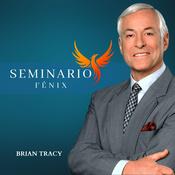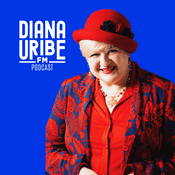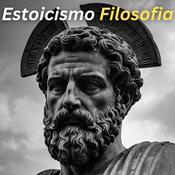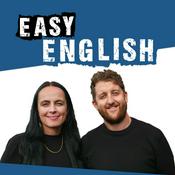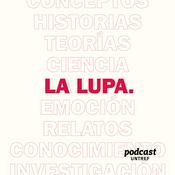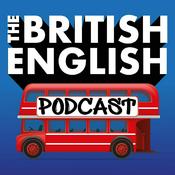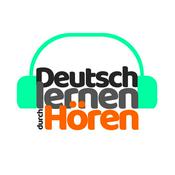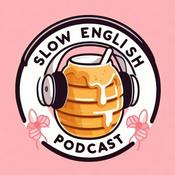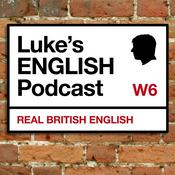138 episodios
The Lead Episode 134: A Discussion of Bachmann Bundle Pacing Target: Retrograde Mapping and Microstructural Correlation
29/1/2026 | 22 minJoin Digital Education Committee Member and podcast host Deep Chandh Raja, MBBS, MD, PhD , and his guests Georgios Leventopoulos, MD, and Muthiah Subramanian, MD, CCDS, CEPS-A, for this week's Lead episode.
This Heart Rhythm article investigates the Bachmann bundle as a target for pacing by using retrograde electrical mapping and correlating findings with underlying myocardial microstructure. The piece provides detailed insights into how Bachmann bundle activation pathways relate to tissue architecture, with implications for optimizing physiologic pacing strategies. These findings may help refine pacing techniques that aim to better mimic natural conduction and improve clinical responses.
Learning Objectives
Describe the anatomical and electrophysiologic characteristics of the Bachmann bundle and its role in atrial conduction.
Explain how retrograde mapping and microstructural correlation can identify optimal pacing targets within the atrial conduction system.
Evaluate the potential clinical implications of Bachmann bundle pacing for achieving more physiologic atrial activation.
Article Authors
Daniel L. Lustgarten, MD, PhD, FHRS, Nicole Habel, MD, PhD, Margaret Infeld, MD, MS, Daniel Correa de Sa, MD, Robert Lobel, MD, Peter Spector, MD, FHRS, Nathaniel Thompson, MD, Joseph Winget, MD, Neal Duong, BME, Bo Ye, MD, PhD, Paul A. Iaizzo, PhD, Markus Meyer, MD, PhD
Podcast Contributors
Deep Chandh Raja, MBBS, MD, PhD
Georgios Leventopoulos, MD
Muthiah Subramanian, MD, CCDS, CEPS-A
Article Being Discussed
Host and Contributor Disclosure(s):
G. Leventopolous
Nothing to disclose.
D.C. Raja
Nothing to disclose.
M. Subramanian
•Nothing to disclose.The Lead Episode 133: A Discussion of Feasibility and Safety of PFA for Coronary Sinus and Left Atrial Appendage Isolation and Mitral Isthmus Ablation Acute and Chronic Findings (LIVE at APHRS 2025)
22/1/2026 | 15 minJoin Digital Education Committee Chair and podcast host Michael S. Lloyd, MD, FHRS, and his guests Kelvin C. Chua, MBBS, MD, FHRS, CEPS-A, and Rahul N Doshi, MD, FHRS, for this week's Lead episode, which was recorded live at APHRS 2025 in Kyoto, Japan.
This discussion will review recent evidence on the feasibility and safety of pulsed field ablation (PFA) for coronary sinus and left atrial appendage isolation, as well as mitral isthmus ablation, focusing on both acute and chronic outcomes. Panelists will examine procedural considerations, lesion durability, and safety signals highlighted in the study, and explore how these findings may inform evolving ablation strategies for complex atrial arrhythmias.
Learning Objectives
Summarize the acute and chronic feasibility and safety outcomes of pulsed field ablation (PFA) for coronary sinus isolation, left atrial appendage isolation, and mitral isthmus ablation as reported in the study.
Evaluate procedural techniques and lesion durability considerations associated with using PFA in anatomically complex atrial structures.
Assess the potential clinical implications of these findings for incorporating PFA into ablation strategies for complex atrial arrhythmias, including patient selection and risk mitigation.
Podcast Contributors
Michael S. Lloyd, MD, FHRS
Kelvin C. Chua, MBBS, MD, FHRS, CEPS-A
Rahul N Doshi, MD, FHRS
Host and Contributor Disclosure(s):
K.C. Chua
•Nothing to disclose.
R. N. Doshi
•Speaking/Teaching/Consulting/Authoring: Boston Scientific, Kestra Inc., Abbott, Impulse Dynamics USA
M. S. Lloyd
•Honoraria/Speaking/Consulting: Medtronic, Agra MedTech, Circa Scientific
•Membership on Advisory Committees: Boston Scientific
Article for DiscussionThe Lead Episode 132: A Discussion of Antithrombotic Therapy after Successful Catheter Ablation for Atrial Fibrillation (English Language Episode)
15/1/2026 | 16 minJoin Digital Education Committee Member and podcast host Melissa E. Middeldorp, MPH, PhD, and her guests Helmut Pürerfellner, MD, FHRS, and Jonathan M. Kalman, MBBS, PhD, FHRS for this week's Lead episode. This episode was recorded LIVE at APHRS 2025 in Yokohama, Japan.
The OCEAN randomized trial found that in patients who remained free of atrial arrhythmia at least one year after successful catheter ablation for atrial fibrillation, continuing anticoagulation with rivaroxaban did not significantly reduce the risk of stroke, systemic embolism, or covert cerebral infarcts compared with low-dose aspirin, with both groups experiencing very low event rates. Additionally, rivaroxaban was associated with a higher incidence of bleeding, suggesting that long-term anticoagulation may not be necessary for many post-ablation patients with low to moderate stroke risk.
Learning Objectives
Evaluate the evidence regarding the risks and benefits of continuing oral anticoagulation after successful catheter ablation for atrial fibrillation.
Interpret the clinical implications of low thromboembolic event rates and increased bleeding risk when comparing anticoagulation with antiplatelet therapy in post-ablation patients.
Apply study findings to clinical decision-making by identifying which patient populations may safely discontinue long-term anticoagulation after atrial fibrillation ablation.
Article Authors
Atul Verma, M.D., David H. Birnie, M.D., Chenyang Jiang, M.D., Ph.D., Hein Heidbüchel, M.D., Gerhard Hindricks, M.D., Paulus Kirchhof, M.D., D.Sc., Jeff S. Healey, M.D. , Yunhe Wang, M.D., Nikolaos Dagres, M.D., Marc W. Deyell, M.D., Prashanthan Sanders, M.B., B.S., Ph.D., Rajeev K. Pathak, M.B., B.S., Ph.D., Pieter Koopman, M.D., Dieter Nuyens, M.D., Paul Novak, M.D., Guy Amit, M.D., Charles Dussault, M.D., Bhavanesh Makanjee, M.D., F. Russell Quinn, M.D., Umjeet Jolly, M.D., Leon Iden, M.D., Malte Kuniss, M.D., Mukul Sharma, M.D., Andrew Ha, M.D., Vidal Essebag, M.D., Ph.D., Jean Champagne, M.D., Michael D. Hill, M.D., Eric E. Smith, M.D., M.P.H., and George A. Wells, Ph.D., for the OCEAN Investigators
Host and Contributor Disclosure(s):
H. Purerfellner
•Honoraria/Speaking/Teaching/Consulting: Biosense Webster, Inc., Abbott, Medtronic, Boehringer Ingelheim, Daiichi Sankyo, Bristol Meyers Squibb, Boston Scientific
J.M. Kalman
•Research: Zoll Medical Corporation, Abbott Medical, Boston Scientific
•Fellowship Support: Biosense Webster, Inc., Medtronic
M. Middeldorp
•Nothing to disclose.
Staff Disclosure(s) (note: HRS staff are NOT in control of educational content. Disclosures are provided solely for full transparency to the learner):
S. Sailor: No relevant financial relationships with ineligible companies to disclose.A Discussion of Antithrombotic Therapy after Successful Catheter Ablation for Atrial Fibrillation (Japanese Language Episode)
15/1/2026 | 14 minJoin podcast host Takanori Yamaguchi, MD, PhD, and his guests Masato Fukunaga, MD, PhD and Masateru Takigawa, MD, PhD, for this week's Lead episode. This episode was recorded LIVE at APHRS 2025 in Yokohama, Japan. This episode was recorded entirely in Japanese.
The OCEAN randomized trial found that in patients who remained free of atrial arrhythmia at least one year after successful catheter ablation for atrial fibrillation, continuing anticoagulation with rivaroxaban did not significantly reduce the risk of stroke, systemic embolism, or covert cerebral infarcts compared with low-dose aspirin, with both groups experiencing very low event rates. Additionally, rivaroxaban was associated with a higher incidence of bleeding, suggesting that long-term anticoagulation may not be necessary for many post-ablation patients with low to moderate stroke risk.
Learning Objectives
Evaluate the evidence regarding the risks and benefits of continuing oral anticoagulation after successful catheter ablation for atrial fibrillation.
Interpret the clinical implications of low thromboembolic event rates and increased bleeding risk when comparing anticoagulation with antiplatelet therapy in post-ablation patients.
Apply study findings to clinical decision-making by identifying which patient populations may safely discontinue long-term anticoagulation after atrial fibrillation ablation.
Article Authors
Atul Verma, M.D., David H. Birnie, M.D., Chenyang Jiang, M.D., Ph.D., Hein Heidbüchel, M.D., Gerhard Hindricks, M.D., Paulus Kirchhof, M.D., D.Sc., Jeff S. Healey, M.D. , Yunhe Wang, M.D., Nikolaos Dagres, M.D., Marc W. Deyell, M.D., Prashanthan Sanders, M.B., B.S., Ph.D., Rajeev K. Pathak, M.B., B.S., Ph.D., Pieter Koopman, M.D., Dieter Nuyens, M.D., Paul Novak, M.D., Guy Amit, M.D., Charles Dussault, M.D., Bhavanesh Makanjee, M.D., F. Russell Quinn, M.D., Umjeet Jolly, M.D., Leon Iden, M.D., Malte Kuniss, M.D., Mukul Sharma, M.D., Andrew Ha, M.D., Vidal Essebag, M.D., Ph.D., Jean Champagne, M.D., Michael D. Hill, M.D., Eric E. Smith, M.D., M.P.H., and George A. Wells, Ph.D., for the OCEAN Investigators
Host and Contributor Disclosure(s):
T. Yamaguchi
•Honoraria/Speaking/Teaching/Consulting: Abbott Japan, Japan Medtronic, Inc., Daiichi Sankyo, Boehringer Ingelheim, Bayer Healthcare Pharmaceutical, Japan, Nihon Kohden, Japan Lifeline, Novartis
M. Takigawa
•Honoraria/Speaking/Teaching/Consulting: Biosense Webster, Inc., Medtronic Japan, Abbott Japan
•Research: Abbott, Biosense Webster, Inc., Medtronic, Inc.
M. Fukunaga
•Honoraria/Speaking/Teaching/Consulting: Boston Scientific Japan, Abbott Medical
Staff Disclosure(s) (note: HRS staff are NOT in control of educational content. Disclosures are provided solely for full transparency to the learner):
S. Sailor: No relevant financial relationships with ineligible companies to disclose.The Lead Episode 131: A Discussion of Caffeinated Coffee Consumption or Abstinence to Reduce Atrial Fibrillation: The DECAF Randomized Clinical Trial (English Language Episode)
08/1/2026 | 15 minJoin Digital Education Committee Member and podcast host Melissa E. Middeldorp, MPH, PhD, and her guests Eue-Keun Choi, MD, PhD, and Sandeep Prabhu, MBBS, PhD for this week's Lead episode. This episode was recorded LIVE at APHRS 2025 in Yokohama, Japan.
The DECAF trial investigated whether continuing regular caffeinated coffee consumption versus complete abstinence affected the recurrence of atrial fibrillation (AF) or atrial flutter in patients after successful cardioversion. Over six months in this randomized study of 200 adults, those who drank at least one cup of caffeinated coffee daily had a significantly lower rate of AF or flutter recurrence compared to those who abstained (47% vs. 64%), suggesting moderate coffee intake may be safe and potentially beneficial for rhythm stability in this setting.
Learning Objectives
Evaluate the impact of caffeinated coffee consumption versus abstinence on atrial fibrillation recurrence following cardioversion.
Interpret the design and key outcomes of the DECAF randomized clinical trial and their relevance to clinical practice.
Apply the trial findings to patient counseling regarding caffeine intake and atrial fibrillation management.
Article Authors
Christopher X. Wong, MBBS, MPH, PhD; Christopher C. Cheung, MD, MPH; Gabrielle Montenegro, BA, Hannah H. Oo, BS; Isabella J. Peña, BA; Janet J. Tang, MPH, PhD; Samuel J. Tu, MBBS; Grace Wall, BA1; Thomas A. Dewland, MD; Joshua D. Moss, MD; Edward P. Gerstenfeld, MD; Zian H. Tseng, MD, MAS; Henry H. Hsia, MD; Randall J. Lee, MD, PhD; Jeffrey E. Olgin, MD; Vasanth Vedantham, MD; Melvin M. Scheinman, MD; Catherine Lee, PhD; Prashanthan Sanders, MBBS, PhD; Gregory M. Marcus, MD, MAS
Podcast Contributors
Melissa E. Middeldorp, MPH, PhD
Eue-Keun Choi, MD, PhD
Sandeep Prabhu, MBBS, PhD
Link to article
Host and Contributor Disclosure(s):
E.K. Choi
•Honoraria/Speaking/Teaching/Consulting: Daiichi
•Stock Options, Privately Held: DeepQure
•Research: Biosense Webster, Inc., Bristol-Meyers Squibb, Bayer Healthcare Pharmaceuticals, Chong Kun Dang Pharmaceutical Corp., Jeil Pharmaceutical Co, Medtronic, Inc., Samjinpharm, Seers Technology, Skylabs, Genome Opinion Inc
S. Prabhu
•Honoraria/Speaking/Consulting: Biosense Webster
•Research: National Health and Medical Research
•Fellowship Support: St. Jude Medical Center, Boston Scientific
M. Middeldorp
•Nothing to disclose.
Staff Disclosure(s) (note: HRS staff are NOT in control of educational content. Disclosures are provided solely for full transparency to the learner):
S. Sailor: No relevant financial relationships with ineligible companies to disclose.
Más podcasts de Educación
Podcasts a la moda de Educación
Acerca de The Lead Podcast presented by Heart Rhythm Society
Escucha The Lead Podcast presented by Heart Rhythm Society, BBVA Aprendemos juntos y muchos más podcasts de todo el mundo con la aplicación de radio.net
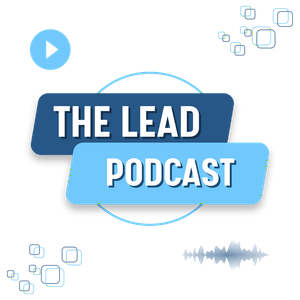
Descarga la app gratuita: radio.net
- Añadir radios y podcasts a favoritos
- Transmisión por Wi-Fi y Bluetooth
- Carplay & Android Auto compatible
- Muchas otras funciones de la app
Descarga la app gratuita: radio.net
- Añadir radios y podcasts a favoritos
- Transmisión por Wi-Fi y Bluetooth
- Carplay & Android Auto compatible
- Muchas otras funciones de la app


The Lead Podcast presented by Heart Rhythm Society
Descarga la app,
Escucha.






